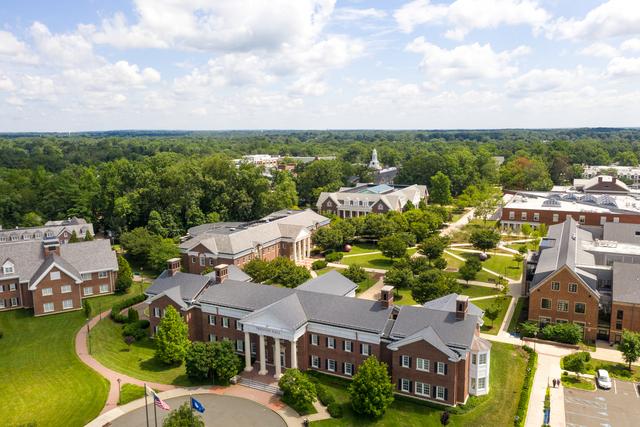After a competitive application and selection process, the Office of Academic Affairs at The College of New Jersey is pleased to announce the recipients of its inaugural Academic Innovation Awards.
These collaborative awards, made possible by a $500,000 anonymous gift to the TCNJ Foundation, aim to stimulate and support academic innovation at TCNJ. They range from small-scale projects to large-scale undertakings proposed by faculty and staff members across all seven academic schools and a variety of disciplines. Eight projects were awarded, with project funding ranging from $5,000 to $75,000.
“This award program is not focused on innovation for innovation’s sake, but rather on new and novel approaches directed at strengthening and enhancing the academic experience and outcomes across the college,” Jeffrey Osborn, provost and vice president for academic affairs, said.
The program requires that all proposals — and awarded projects — include a collaborative team with at least two faculty and/or staff members leading the effort. To further promote and scale innovative approaches at the college, the participating teams from the eight projects will join a cohort facilitated by TCNJ’s Center for Excellence in Teaching and Learning and will report on their academic innovation work and outcomes at an annual event.
The inaugural large award, and its leaders include:
Campus as a Living Lab
- Miriam Shakow, sociology and anthropology
- Wendy Clement, biology
- Louise Ammentorp, early childhood education
- Kathleen Webber, journalism and professional writing
The inaugural medium award, and its leaders include:
Relaunching the Partnership between the Moving Forward Together-African American Student Nurse Mentorship Program and Trenton Central High School Healthcare Profession Students
- Yolanda Nelson, nursing
- Deirdre Jackson, nursing
Six projects were selected for inaugural small awards. These projects and their leaders include:
Developing a Qualitative Methodology Course and Research Collective across the School of Humanities and Social Sciences
- Lynn Gazley, sociology
- Ada Onyewuenyi, psychology
- Sarah Chartock, political science
- Patricia Becker, criminology
- Marla Jaksch, women’s, gender, and sexuality studies
- Piper Kendrix-Williams, African American studies
Designing with Clay and Makerspace Technologies
- Lisa LaJevic, art and art history
- John Kuiphoff, design and creative technology
- Marchelo Vera-Lee, art and art history
Enhancing Career Readiness of Public Health Students
- Marjorie Blicharz, career center
- Livia Lazzaro, public health
Expanding Engagement in Microscopy
- Angela Capece, physics
- Nate Magee, physics
Environmental Health Simulation
- Alexis Mraz, public health
- Brenda Seals, public health
- Sylvia Twersky, public health
- Mei Zhao, public health
Empowering Future Teachers in the Diverse Elementary Classroom
- Chyuan (Alex) Pan, elementary and early childhood education
- Stephanie Pisabaj, Robbins Elementary School
The collective impact of these eight projects will be significant. “The ‘Campus as a Living Lab’ project is an opportunity for the TCNJ community to use campus outdoor spaces as core sites for student learning about environmental sustainability,” said Miriam Shakow, professor of sociology and team leader for the inaugural large award. “Through interdisciplinary coordination on long-term sustainability initiatives, this project will draw together faculty, staff, and students from across the campus, building upon and enhancing current efforts, to increase high impact learning on climate change and environmental justice, while raising the profile of the college regionally and nationally.”
